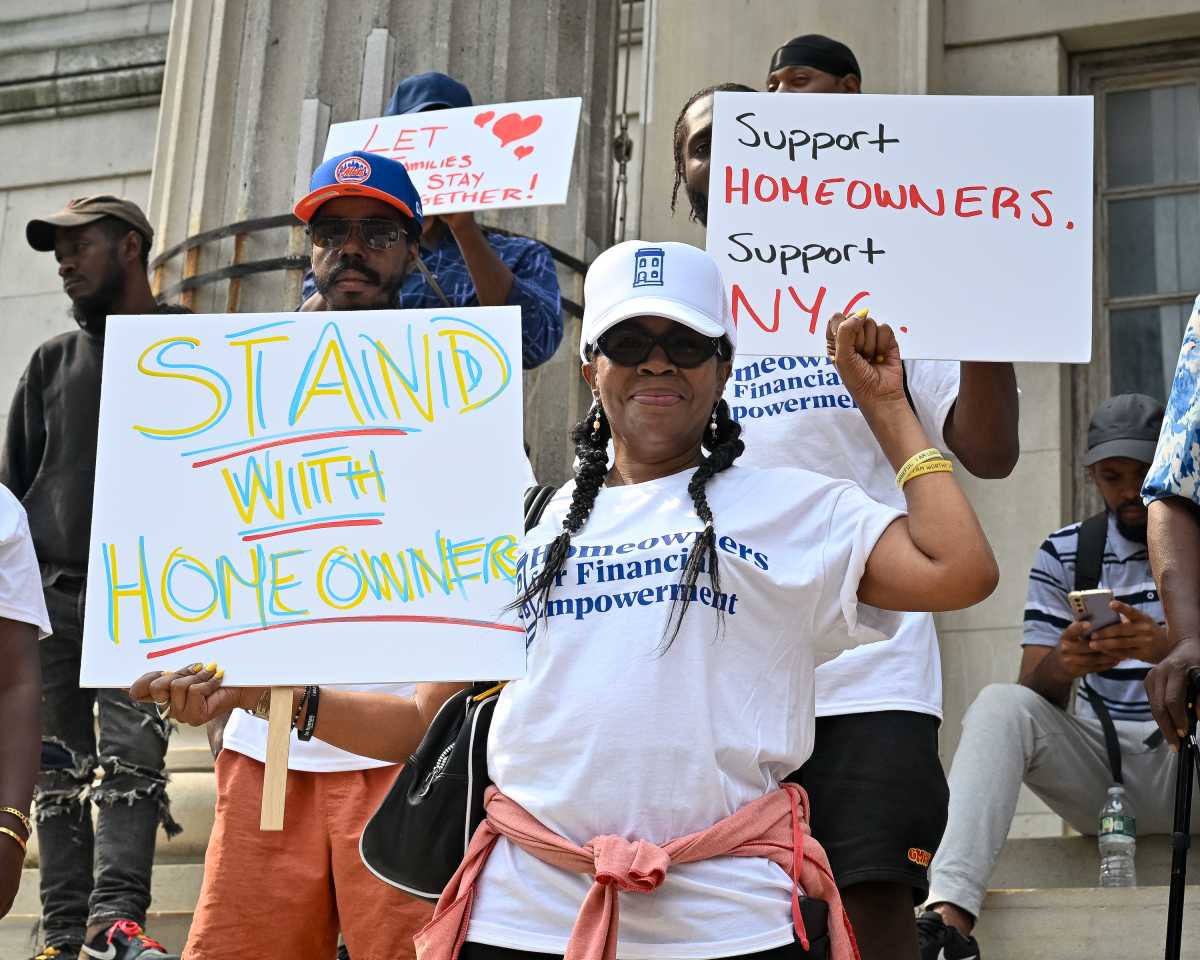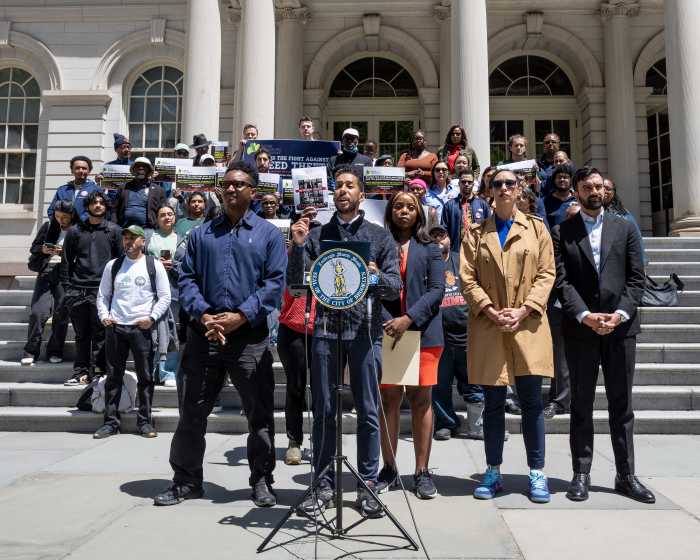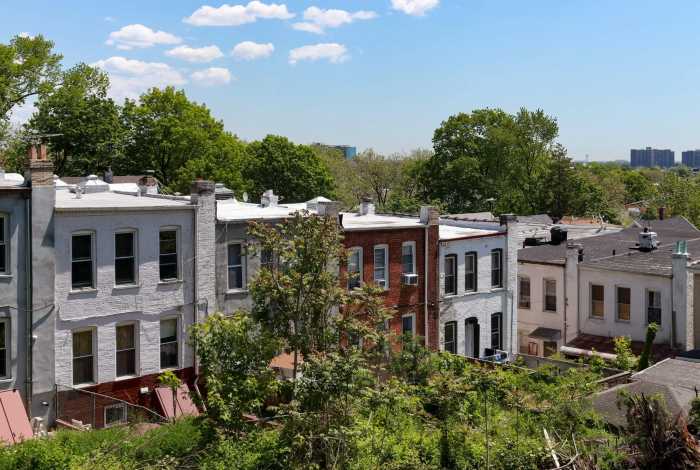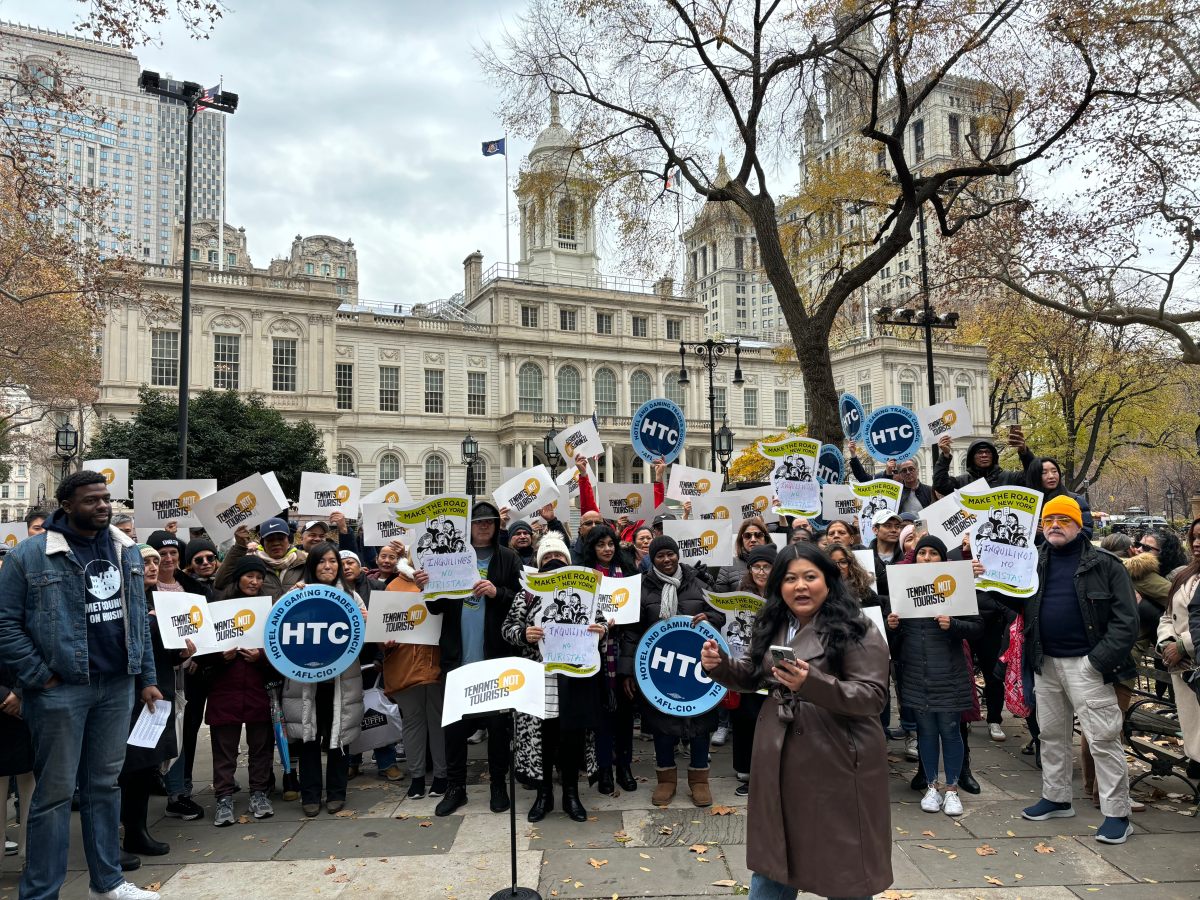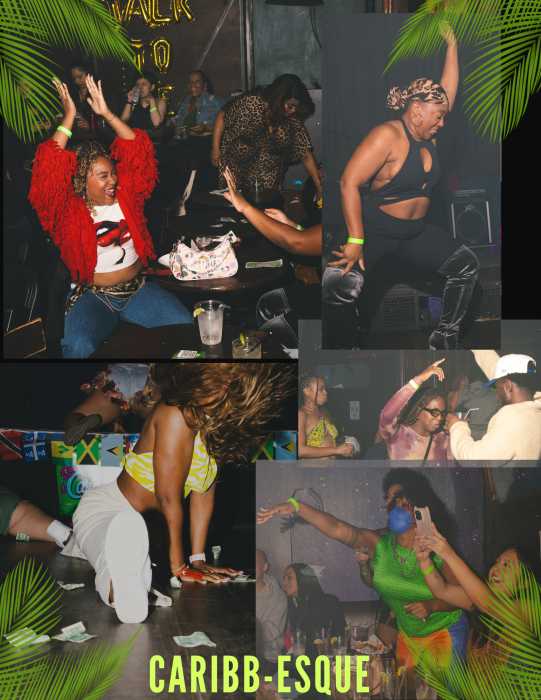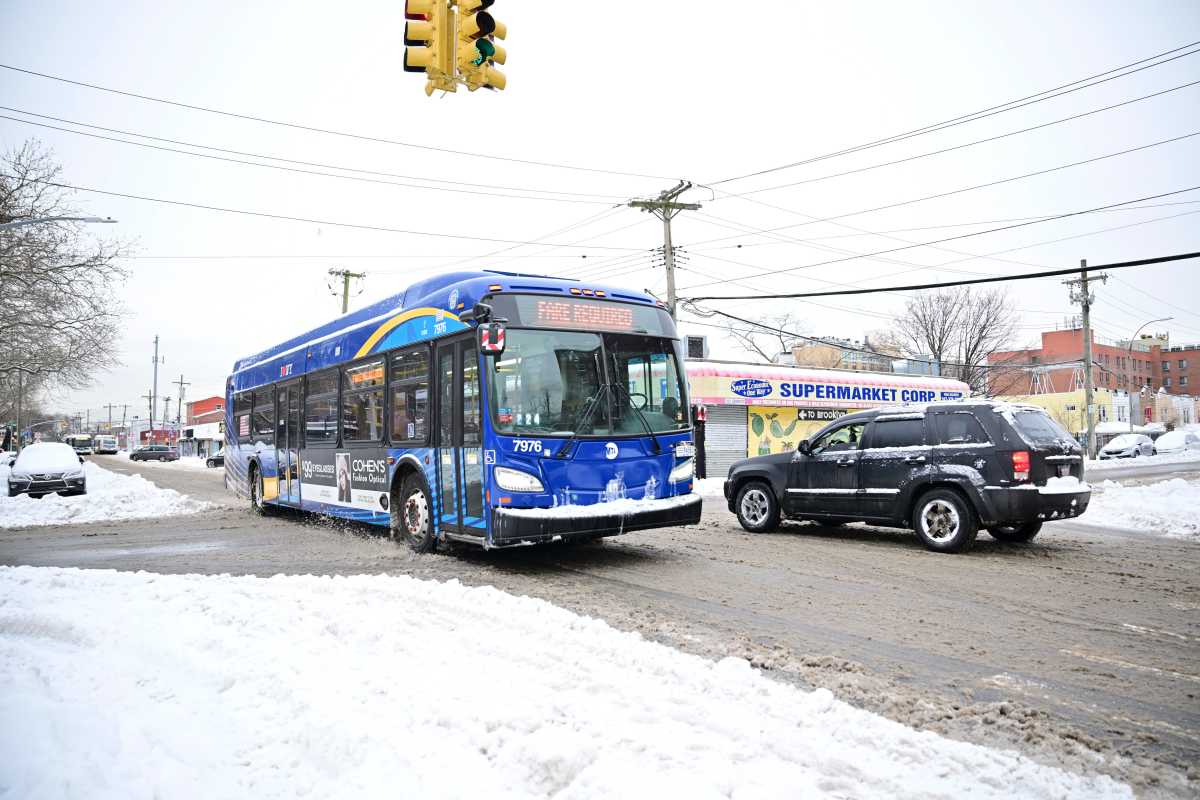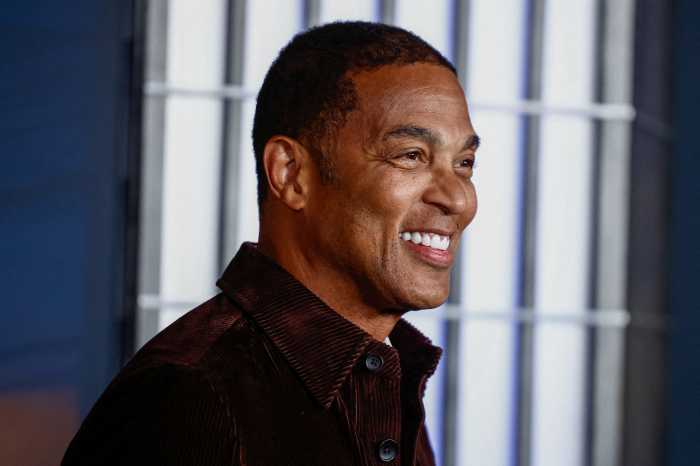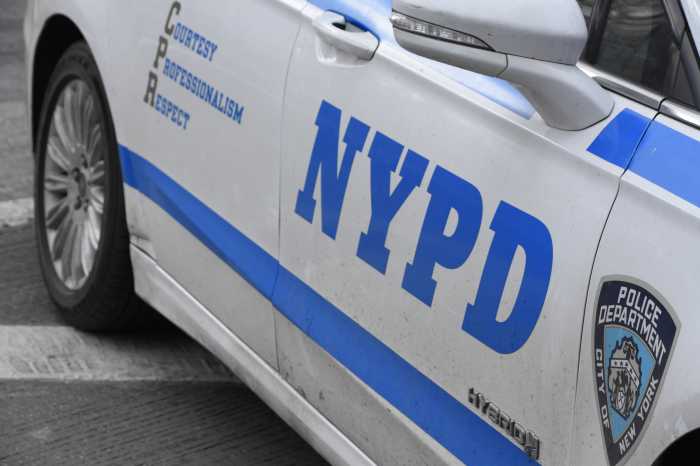Dozens of New Yorkers rallied on the steps of Brooklyn Borough Hall this week to support a new bill that would ease the city’s strict short-term rental regulations. The legislation aims to roll back key provisions of Local Law 18, which hosts say has devastated their incomes and made it nearly impossible to rent out their homes on platforms like Airbnb and VRBO.
Local Law 18, which went into effect in September 2023, requires hosts to register short-term rentals with the Mayor’s Office of Special Enforcement (OSE) for any stays under 30 days. The law mandates that hosts be present during a guest’s stay and limits occupancy to two guests — conditions that critics say make it nearly impossible for families to stay together.
Another provision, known as the “Unlocked Doors Provision,” prohibits internal doors within the unit from having key locks. This rule grants all occupants access to the entire space, meaning guests and family members must share unrestricted access throughout the home.
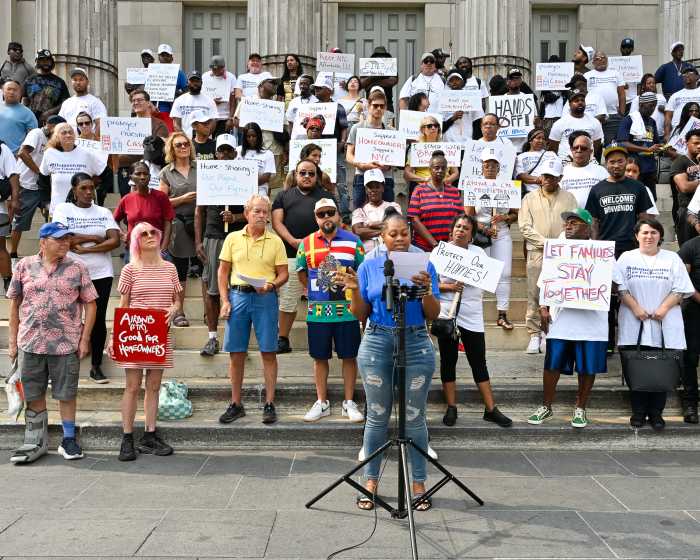
Intro 1107, a bill sponsored by Council Member Farah Louis (D-Brooklyn), seeks to ease some of those restrictions. The proposed legislation would allow owners of one- to two-family homes to offer short-term rentals for 30 days or less without being physically present. It would also raise the occupancy cap to four adults plus children and eliminate the Unlocked Doors Provision, providing greater privacy for both hosts and guests.
Many small-property owners say they rely on short-term rental income to pay their mortgages and that Local Law 18 stripped them of a vital financial lifeline.
At the rally on Aug. 5, Airbnb host Kerri Patterson, of Jamaica, Queens, told the crowd that she achieved the American dream of homeownership in 2016 when she bought a two-family home — a goal she said would have been out of reach without Airbnb.
Patterson has hosted short-term rentals for nearly seven years.
“Hosting gave me something I hadn’t felt in a long time — financial security,” Patterson said. “I wasn’t worried about whether I could pay my bills. Hosting changed everything for me and my family. Sharing my home gave me control and, most importantly, safety and peace of mind.”

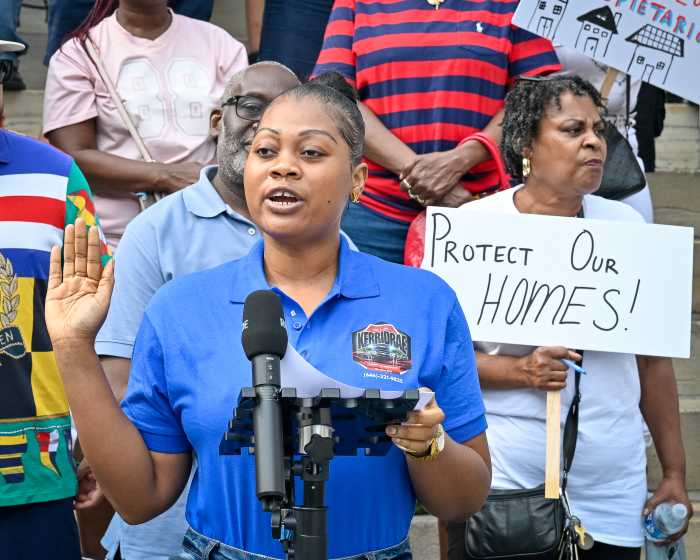
Patterson said she was blindsided when Local Law 18 took effect. Her bookings were abruptly canceled, and it took eight months to receive OSE certification. She said the 24/7 host presence requirement and the Unlocked Doors Provision are major turnoffs for guests seeking privacy.
“With the new rules, I went from having a steady income to wondering, ‘Would I be able to pay my mortgage on time under these new rules?’” Patterson said. “I have to share the same space with the guests, which isn’t what many travelers want. They want privacy. They want a hassle-free vacation. The city is forcing me in a way that hurts how we make ends meet and makes travelers think twice about booking with us.”
Other hosts echoed Patterson’s frustration. Bed-Stuy host Amy Werba, who has a short-term rental registration, said the law infringes on personal freedoms and makes affordable accommodations hard to find for families visiting New York City.
“We can’t leave our home while renting it. We can’t lock off private areas. We’re limited to just two guests,” Werba said. “Even if families with children want to stay in New York, they want to stay in my neighborhood, they want to come and visit family, they cannot afford $500-a-night hotels.”
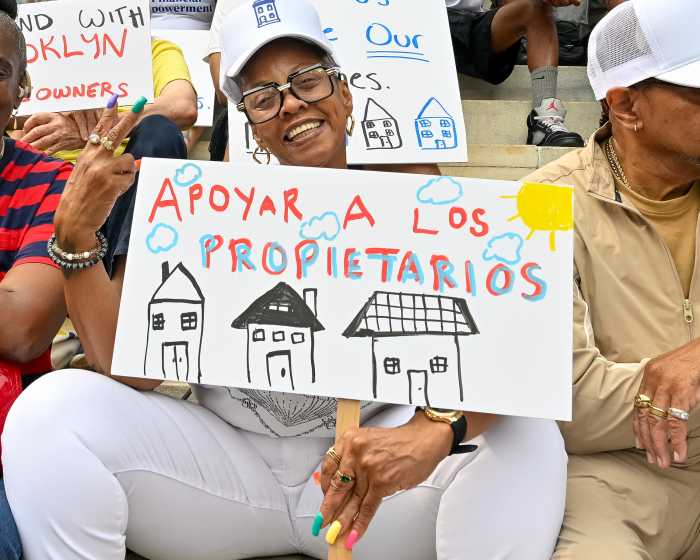
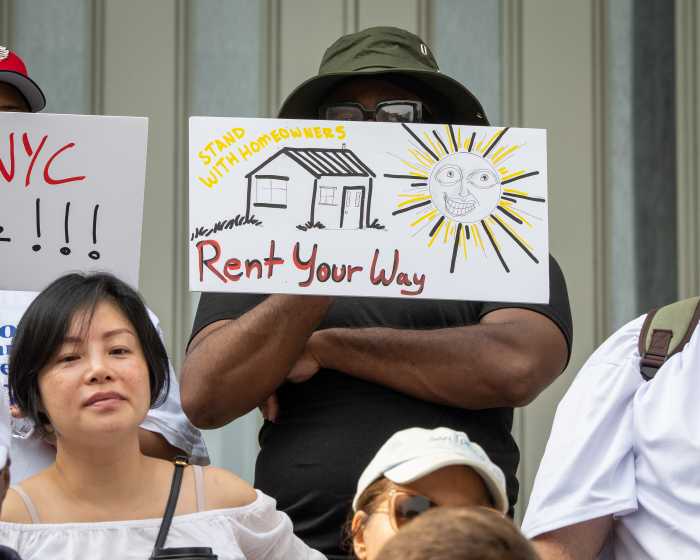
Lory Henning and her wife, Cindy Keiter, who own a two-family home in Prospect Lefferts Gardens, have hosted on Airbnb since 2019. They canceled 27 bookings when the law took effect, losing thousands of dollars in income.
The couple, who rent a full suite with multiple rooms, said it took a year to get certified under Local Law 18 due to the city’s listing categorization requirements. They were forced to list the space as a “room” on Airbnb rather than a “guest suite,” which confused potential renters.
“We had to just do this process of experimentation and rereading [the city’s] emails for hints about what they were looking for, and then go back and tweak it,” Henning said. “The Airbnb listing had to say that it was a room for rent, not a guest suite or an apartment.”
“The listing is not an accurate reflection of what people are renting, the way that we’re forced to categorize it, because it’s more than a room,” she added.
Tom Sneeringer and his wife, Claudia, own a three-family home in Cobble Hill. They occasionally rented their unit while away on business or vacation. The supplemental income, he said, helped maintain the building and keep rent affordable for the two long-term tenants.
“That’s always been our priority, doing our part to fight back against New York City’s sky-high housing costs,” Sneeringer said. “When the city started enforcing the new rules, we lost that income. It’s made it harder to keep our apartments affordable and maintain the building in the way we want to.”
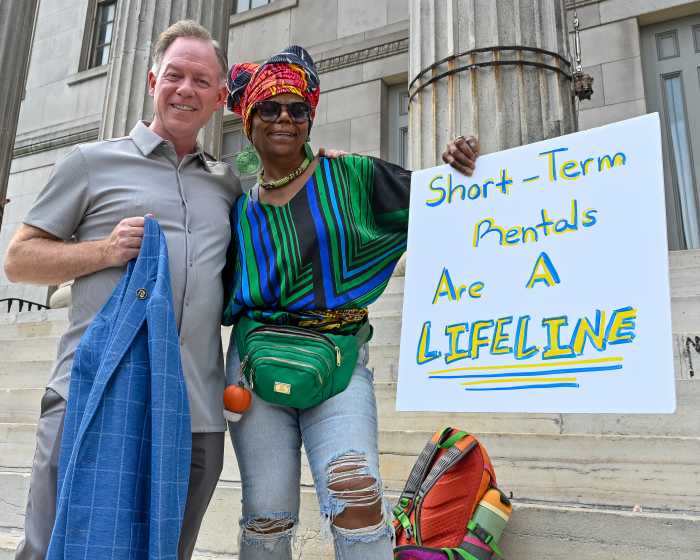
Local Law 18 was introduced as a way to help ease the city’s affordable housing crisis. However, public opinion on its effectiveness is mixed.
A recent poll by Penta, commissioned by the Bronx, Brooklyn, Manhattan and Queens Chambers of Commerce, found that 82% of New Yorkers do not believe the city’s short-term rental rules have improved housing affordability.
Meanwhile, a study by economic consulting firm Charles River Associates, commissioned by Airbnb, estimated that New York City lost nearly $82 million in tax revenue due to the restrictions. Supporters of Intro 1107 argue that money could have been used to fund affordable housing.
“We were told this was going to help solve the housing crisis in New York City,” said Randy Peers, president and CEO of the Brooklyn Chamber of Commerce. “Yet it is worse today than ever before, and certainly worse since they passed Local Law 18.”
The law has also affected local small businesses in the outer boroughs.
Calvin Sennon, owner of Trini Jam BK in Canarsie, told Brooklyn Paper that his restaurant — and others in the area — has seen a significant drop in foot traffic since the implementation of the law, driven by a sharp decline in local tourism.
Intro 1107, Sennon said, would help revitalize neighborhoods like Canarsie and support small businesses that are also dealing with rising inflation.
“[Intro 1107] would benefit a neighborhood that’s been long forgotten,” Sennon said. “I think that this law will help ensure that the working class continues to grow, rather than taking away options that seem to be stifling the growth of the community.”
Tenants Not Tourists, a coalition of tenant unions and housing advocacy groups opposing Airbnb’s efforts to overturn New York City’s short-term rental laws, slammed the Penta poll.
The coalition, which has the support of the Hotel and Gaming Trades Council, referred Brooklyn Paper to a Tulchin Research poll, which shows a majority of New Yorkers are opposed to legislation to weaken enforcement of short-term rental laws in NYC. According to the survey, 70% of New Yorkers say Airbnb’s effort would worsen New York City’s housing crisis, and 69% said that short-term vacation rentals lead to higher prices and rents.
Whitney Hu, director of Civic Engagement and Research at Churches United for Fair Housing and a member of the Tenants Not Tourists coalition, said that Intro 1107 would “decimate” the housing supply and drive rents to new record highs.
“Across the world, Airbnb and its allies are bankrolling dark money astroturf campaigns like this one to spread lies to advance their affordability-killing, anti-tenant agenda. But New Yorkers aren’t falling for Airbnb’s sham tactics, and no new ‘poll’ faking support for their dangerous legislation will change that,” Hu said in a statement.
Update 8/8/25 3 p.m.: This story has been updated with comment from Tenants Not Tourists and Whitney Hu.


